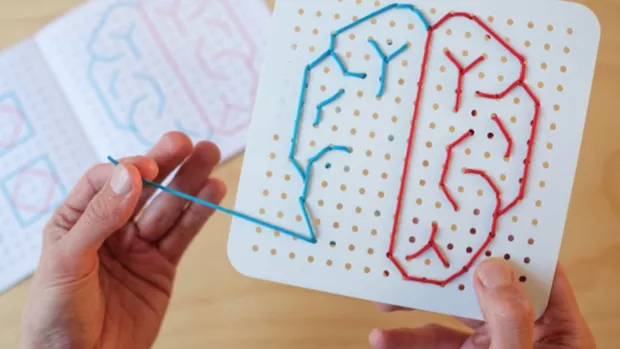
Helping people with MS through rehabilitation
For International Day of Women and Girls in Science, we’re highlighting some of the brilliant women in MS research. Research Network member Pauline Knott spoke to Professor Jenny Freeman about her decades-long career researching MS rehabilitation.
Jenny, a trained physiotherapist, developed an interest in research in 1993. Her spark for learning more on rehab resulted in a PhD conducting the first trial on the effectiveness of rehab in progressive MS. Now, nearly 20 years later she’s one of the top experts in the field.
Right support at the right time
In that first trial, she tested an in-patient rehab programme for progressive MS. She followed people for up to a year after they were discharged to see if effects worked in the long-term. She found rehab significantly improved both disability level and emotional well-being. But this declined over time, which shows how important it is to maintain a good rehab regime.
Since then, she’s worked on all sorts of different MS research projects. From testing the effectiveness of Pilates to supervising a PhD student investigating falls. And thanks partly to her efforts, our understanding of MS rehab has come a long way.
For example, Jenny’s work as a physio now focuses on a whole care package with targeted intervention. She’ll focus on aerobic fitness and strengthening at the same time. And involve other specialists, like speech and language therapists or occupational therapists. A bigger team can look at the whole range of needs for someone, targeting specifically what is right for them at that time. This means they can more realistically keep doing things successfully for themselves at home.
Jenny’s proudest moment
Jenny told me about research she led looking at the use of standing frames with a group of 140 people who were severely disabled. The project called SUMS (standing up in MS) asked people to use a frame to stand 3 times a week for 20 weeks.
It showed that regularly standing at home with a frame can improve strength and functional ability. It may also help with symptoms that could come from not being mobile, like spasms. She’s proud because this research has really improved the quality of people’s lives. Six years on, people are still using their frame.
One aspect of rehabilitation Jenny has been interested in over the years is goal setting. This is helping really people figure out what is relevant and meaningful to them. Many rehabilitation activities take effort and persistence, so having that additional understanding helps Jenny support her patients. She tells me of a father who took part in the SUMS study. He wanted to use his standing frame to walk his daughter down the aisle - a clear goal and deadline.
She says things like this make it so much more rewarding as a researcher and therapist. You find out what makes people tick, and if you can help them achieve their goal there’s nothing more satisfying.
And the next big thing?
Jenny is working on a multi-centre trial called CogEx. This'll look at how rehabilitation can help people with progressive MS who have cognitive symptoms, like problems with memory. The programme is looking at the effectiveness of exercise and cognitive rehabilitation, and whether they work better independently or together. It’s the first international study of its kind, with 6 countries involved and 360 participants speaking 4 different languages.
Jenny says her work benefits from shared experiences in healthcare and learning from others. The massive progress neurology has made with disease modifying therapies is very exciting. But listening to Jenny has convinced me that this should be coupled with effective and continuous rehab for symptom management.
Find out more about MS and exercise and MS


